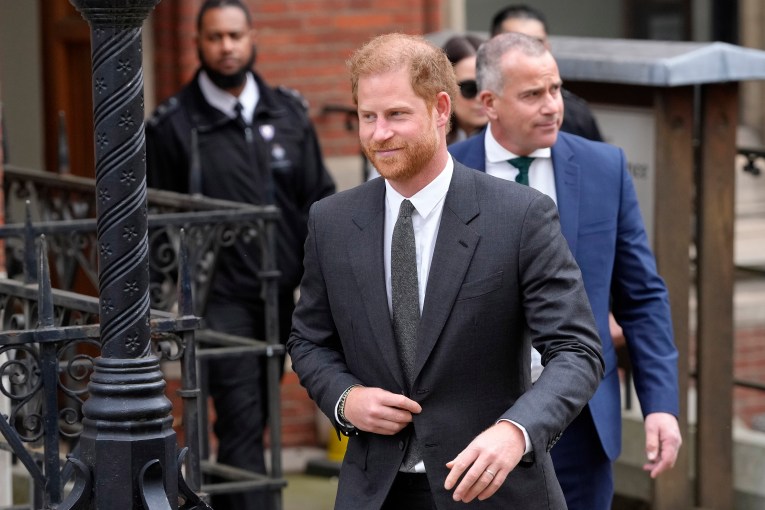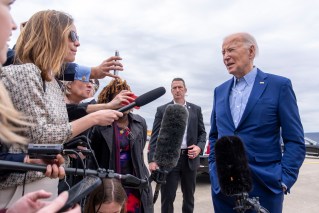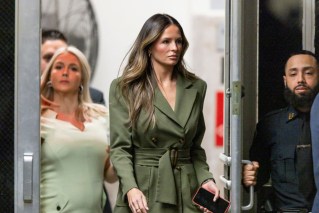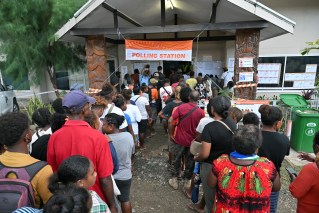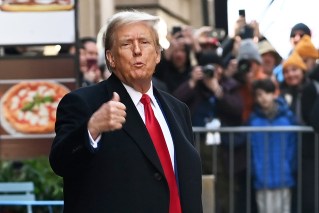Promises, promises: How Trump’s 2018 State of the Union agenda fared
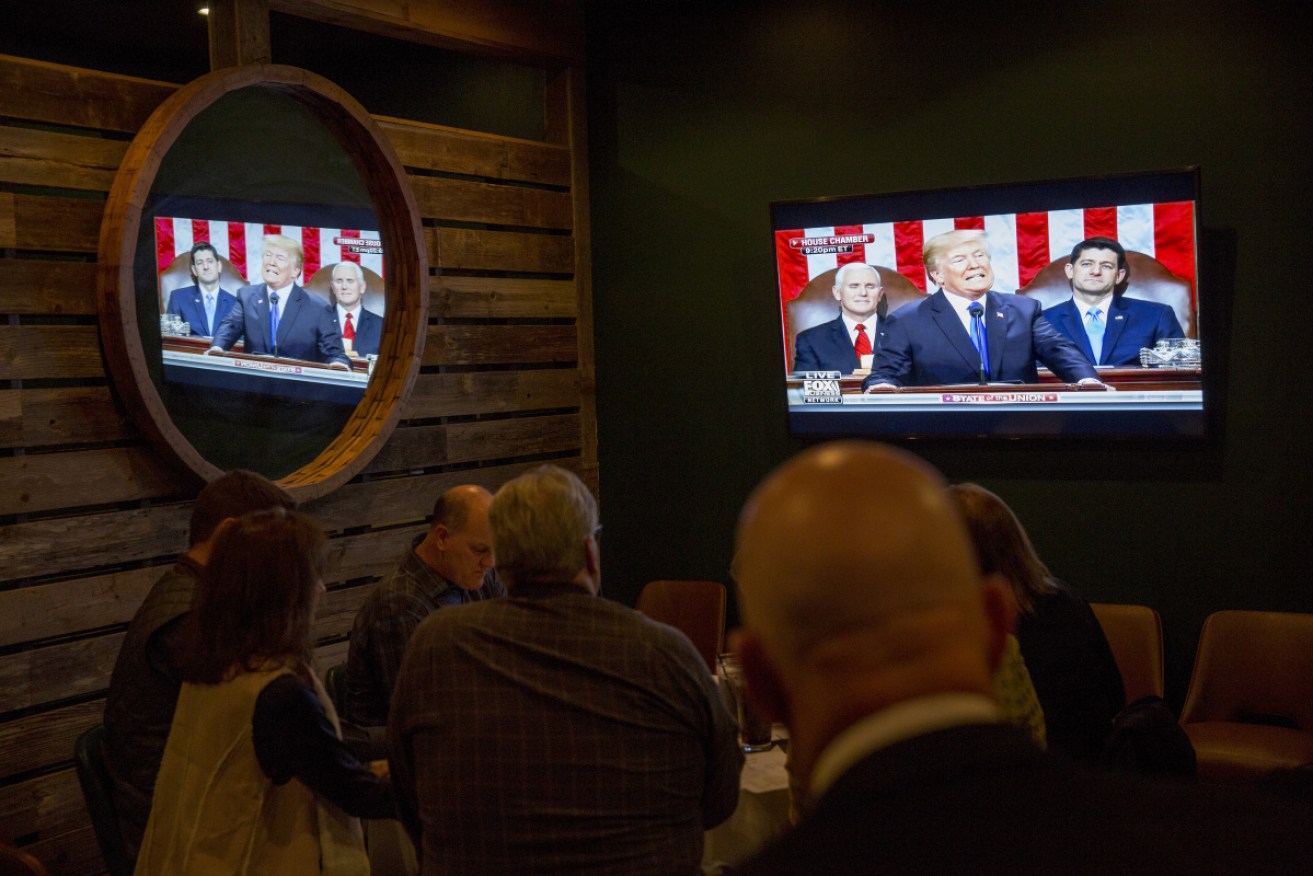
The 2018 State of the Union speech was watched by millions. Photo: New York Times
In his first State of the Union address last year, President Donald Trump outlined his vision for an “America first” approach to overhauling the immigration system, revitalising manufacturing and prioritising national interests abroad.
As Mr Trump prepares to deliver his second address on Tuesday (Wednesday, AEDT), which is also expected to highlight the president’s immigration agenda, here’s an assessment of his progress on the promises he made last year.
Immigration
THE PROMISE
“It is time to reform these outdated immigration rules, and finally bring our immigration system into the 21st century. These four pillars represent a down-the-middle compromise, and one that will create a safe, modern and lawful immigration system. For over 30 years, Washington has tried and failed to solve this problem. This Congress can be the one that finally makes it happen.”
Status: Unfulfilled
Attempts to pass a comprehensive immigration overhaul failed in Congress, with proposals backed by the White House receiving the least support.
The “four pillars” Mr Trump described are providing a pathway to citizenship for the immigrants originally brought to the US as children, known as Dreamers; building a wall on the southern border; ending the “diversity lottery” visa program; and limiting family-based immigration.
In February 2018, the Senate rejected three immigration bills. The White House plan, which met all four of Mr Trump’s requirements, received the fewest votes. The two other bills did not fulfil all the requirements. In June, the House rejected another bill that included the four pillars as well as a more hard-line measure that did not provide a pathway to citizenship for Dreamers, who were brought to the country illegally as children.
And Mr Trump’s address this year comes after a 35-day government shutdown, the longest ever, over the president’s demand for border wall funding.

The shutdown has delayed the annual State of the Union address. Photo: New York Times
Manufacturing and trade
THE PROMISE
“Chrysler is moving a major plant from Mexico to Michigan; Toyota and Mazda are opening up a plant in Alabama. Soon, plants will be opening up all over the country.”
Status: Unfulfilled
Toyota and Mazda broke ground on their $1.6 billion joint venture in Alabama in November. Chrysler had announced that it would move production of heavy-duty pickups – not the plant itself – from Mexico to Michigan, but has since paused those plans.
A database maintained by the Reshoring Initiative, a group that encourages companies to move back to the United States, listed plans by Chevrolet to expand car battery production in Michigan, Ford’s unveiling of a 3D printing operation in the state and the opening of a new factory in Ohio by a Japanese company that makes prototype parts.
But no other company has announced or opened a new assembly plant in the United States. In contrast, General Motors said it would [make] idle five car factories.
New rules for automakers in the successor to the North American Free Trade Agreement would require automakers to eventually produce 75 per cent – up from 62.5 per cent – of a vehicle’s content in North America to qualify for zero tariffs.
But the deal still awaits congressional ratification. And the changes would do little to encourage investment in the United States since “most vehicles are going to be able to get over those new thresholds pretty easily,” said Kristin Dziczek, vice president for industry, labour and economics at the Center for Automotive Research in Ann Arbor, Michigan.
Even if the administration raised tariffs on foreign car imports, spurring investment in the United States, automakers would still be mindful of the volatility of Mr Trump’s trade policies and “investment would sit on the sidelines,” Ms Dziczek said.
Employment in the auto industry has increased slightly under Trump’s watch, to about one million in November 2018 from 955,800 in January 2017. The number of vehicles manufactured in the United States has continued to decline, even after a slight uptick last summer. According to the Reshoring Initiative, announcements to increase investment or move companies back to the United States peaked in 2016.
THE PROMISE
“We will work to fix bad trade deals and negotiate new ones. And we will protect American workers and American intellectual property, through strong enforcement of our trade rules.”
Status: Fulfilled
Trump has renegotiated NAFTA and a bilateral trade deal with South Korea.
While the changes to the South Korea agreement were modest, the revised NAFTA strengthens intellectual property rights in Canada. An investigation into China’s trade practices concluded that Beijing had, among other unfair trade practices, violated US intellectual property rights. As a result, the Trump administration imposed tariffs on $250 billion worth of Chinese products. The two sides are in talks over a trade deal to resolve the dispute.
Health care
THE PROMISE
“People who are terminally ill should not have to go from country to country to seek a cure – I want to give them a chance right here at home. It is time for the Congress to give these wonderful Americans the ‘right to try’.”
Status: Fulfilled
Trump signed “Right to Try” legislation into law in May, allowing terminally ill patients to seek access to experimental medicine that is not approved by the Food and Drug Administration.
A similar program known as compassionate use, or expanded access, has been in place since the 1970s, and the FDA says it authorises 99 per cent of the requests it receives. The new law allows patients, with the approval of their doctor, to ask drug companies directly for access, rather than wait for approval by the agency.
THE PROMISE
“That is why I have directed my administration to make fixing the injustice of high drug prices one of our top priorities. Prices will come down.”
Status: Partially fulfilled
Drug prices are still increasing, albeit at lower rates than in previous years.
An Associated Press analysis found that from January to July 2018, drug companies raised prices on more than 4400 products, with a median increase of 5.2 per cent. That was lower than the median increase of 8 per cent for the same period in 2017. Drug prices have continued to increase on hundreds of medicines this year.
Infrastructure
THE PROMISE
“Tonight, I am calling on the Congress to produce a bill that generates at least $1.5 trillion for the new infrastructure investment we need.”
Status: Unfulfilled
No comprehensive bill has emerged since Mr Trump nudged Congress to act.
A detailed version of Mr Trump’s proposal, released by the White House in February 2018, pledged $200 billion in federal funding (less than half of what the Trump transition team promised in December 2016). The money would come from savings from other cuts in the federal budget, according to the White House, and would spur states and private companies to invest $1.5 trillion in infrastructure over the next decade.
Yet Congress has not passed any bill that would make good on this $200 billion proposal. Draft legislation to temporarily increase the gas tax to shore up the Highway Trust Fund was never formalised or voted on.
Accountability in government
THE PROMISE
“I call on the Congress to empower every Cabinet secretary with the authority to reward good workers – and to remove federal employees who undermine the public trust or fail the American people.”
Status: Unfulfilled
Trump signed an executive order in May making it easier to fire government employees, but a federal judge struck down most of its provisions. A similar bill was introduced in the House but did not advance to a vote.
Military
THE PROMISE
“For this reason, I am asking the Congress to end the dangerous defence sequester and fully fund our great military.”
Status: Partially fulfilled
While Congress has not yet repealed the defence sequester limiting military spending, lawmakers effectively ignored it and increased funding last year.
The Budget Control Act of 2011 imposes caps on federal spending for the next decade, to compel Congress to find savings in the budget. If lawmakers do not reduce spending, “sequestration” kicks in and enforces the caps. Later spending deals raised the caps, limiting military spending to $549 billion in the 2018 fiscal year and $562 billion in the 2019 fiscal year.
Mr Trump signed legislation that allotted the Pentagon $629 billion and $647 billion in 2018 and 2019 fiscal years, far exceeding the spending limits. (Those figures do not include a separate Pentagon account for war spending.)
While the sequester is still in place for the 2020 and 2021 fiscal years, it is not difficult to imagine lawmakers and the president continuing to raise the cap – rendering the sequester moot.
Foreign policy
THE PROMISE
“That is why, tonight, I am asking the Congress to pass legislation to help ensure American foreign-assistance dollars always serve American interests, and only go to America’s friends.”
Status: Unfulfilled
Congress ignored Mr Trump’s calls to drastically reduce foreign aid, instead approving budgets that included billions more than the president had requested, and made no significant changes to foreign aid policy.
Sarah Rose, an analyst at the Center for Global Development, said the administration had been constrained by Congress – and its own “fundamental inconsistency” in funnelling money to friends and allies while simultaneously giving aid to countries that might not otherwise receive it in order to counter China’s influence.
Mr Trump has threatened to cut off aid to Central American countries over migrant caravans, and Nikki Haley, the former ambassador to the United Nations, had proposed making aid contingent on support for US-backed policies at the United Nations.
Yet the amount of assistance given to Honduras, Guatemala and El Salvador has been typical. And while the United States did end funding for Palestinian refugees in August, it did not follow through on withholding aid from countries that voted for a UN resolution condemning Mr Trump’s decision to recognise Jerusalem as the capital of Israel, said Jeremy Konyndyk, a former director of the foreign disaster assistance program at the US Agency for International Development.
“The issue is that he made a promise that was well beyond his ability to accomplish,” Mr Konyndyk said. “The president is not a monarch and can’t just do things unilaterally.”
-New York Times
